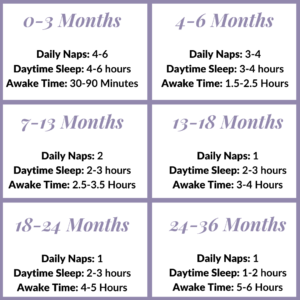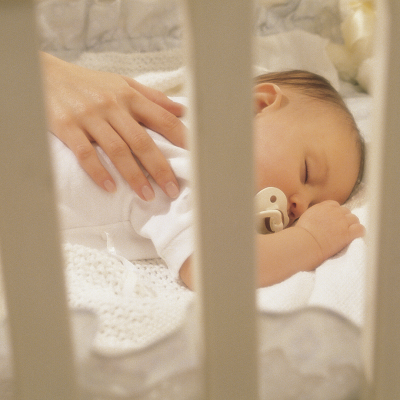Respecting an Early Bedtime
I love an early bedtime for my kid (and for myself.) As a full time working parent, I understand firsthand how conflicting an early bedtime might seem.
But by respecting an early bedtime, you are making sleep a priority for your family.
A healthy bedtime for an infant and toddler is between 6:00pm-8:00pm. Sometimes even earlier depending on naps that day.
I know that can be tough for working parents. I get it. I am a working parent and my child’s bedtime was 6:30pm on the dot when she was an infant. That meant sometimes I only got to spend 1 hour or less with her after work before starting her bedtime routine.
Hear me out… young children require 10-12 hours of nighttime sleep alone! The only way to log those hours is by starting early. Even if it means sacrificing some much-desired one-on-one time.
Focus on making the most of your limited time before bed by being intentional in everything you do together. That means you put the phone away and turn the TV off. Make your child your only priority in that time. Get down on your child’s level and let them take the lead. Look your child in the eyes and allow them to feel how devoted you are to spending this time with them. Have a dance party in their room and get the giggles really going! Go outside and run around when the weather permits. The fresh air and natural light promote healthy sleep and does wonders for everyone’s mood. The dishes and laundry can wait until after bedtime.
Putting your child to bed feeling loved, fulfilled, and heard is one of the best parenting and sleep practices you can offer.
Re-prioritize
An early bedtime might also mean you have to adjust your schedule a little. Maybe it means you pack lunches the night before and get up a little earlier on weekdays to get ready so when baby wakes up, you can spend your morning playing, taking time to read a book during wake up, and generally investing in quality/intentional time together.
Maybe baby isn’t part of the family dinners for the first few months to accommodate their early bedtime.
My daughter is almost 2 and my husband and I feed her and put her to bed before we make dinner for ourselves. Does it mean we eat closer to 8pm? Yeah. But it also means my daughter has BOTH of our undivided attention between daycare and bedtime. It means my husband and I also get quality time to make and eat dinner together. We don’t sacrifice eating kid-friendly meals. And we get a hot meal we can eat as slowly as we want while we catch up on our days. It doesn’t mean I don’t value meals as a family. We do eat dinner together as a family at least twice a week now that she can handle a tad later bedtime. But most nights, and for now, this works for our family dynamic.
Respecting an earlier bedtime for your little one means can not only mean more time to spend with your partner, but it means more time for yourself. To workout, to read a book, to watch a show, to make a fancy dinner, to do a chore, work on a side hustle or hobby… to RELAX! It could even mean more quality one-on-one time with an older sibling.
Changing your mindset around an early bedtime and adjusting your priorities early on can have a huge impact on the quality of your family’s sleep and general overall well-being. A well-rested child (and parents!) are happier. Getting a healthy amount of restorative sleep can contribute to a slew of other health-related benefits, too.
Why an early bedtime matters
Respecting an early bedtime for your younger child can actually alleviate sleep issues you might currently be experiencing. An overtired baby is going to experience restless sleep and can often lead to early morning wakings.
Here are some signs your child’s bedtime is too late:
- Bedtime is later than 8pm.
- Your child has a hard time falling asleep and staying asleep.
- Your child experiences restless sleep and has multiple night wakings.
- Your child consistently wakes prior to 6am and struggles to get back to sleep on their own.
- By age 4 months (16 weeks adjusted) your child has not logging at least 3-4 hours of uninterrupted sleep stretches.
Why bedtime routines matter
Children handle change best in the context of a familiar routine. A bedtime routine is one of the most important routines when it comes to creating a healthy and predictable sleep schedule. In a world of unknowns, a consistent routine provides a sense of comfort, security, and self-control.
Routine also provides an outlet of communication at a time when conversation with your kids can be limited. By doing things in the same order every night, even your infant will be able to pick up on the pattern and understand what comes next. It is the perfect way to transition from daydream to dreamland.
You should start your bedtime routine at the same time every night. The order of which you do things in the routine is important and should be the same every time. For example: bath, PJs, books, bottle, lullaby, bed. Same order, every night. Repetition creates patterns. Patterns create habits. Habits manage expectations. Be firm about your lights out time by keeping your routine to 30 minutes max. That bed time helps set your child’s internal clock to sleep mode.
So what do you do when life happens and bed time gets derailed one night? It’s okay! Just try to get back on track the next night.
What do you do if naps were especially crappy that day or an outing caused you to skip a nap? You might need adjust your bed time to be a little earlier than usual. Yes, even as early as 5:30pm.
That time between the last nap of the day and bedtime is the most sensitive wake time. If the last nap of the day is too long or too short, it could interfere with bedtime.
If the last nap is too short, move bedtime up to prevent an overtired baby.
If the last nap is too long, baby might fall asleep at their set bedtime but could experience night wakings or an early wake up. They were tired enough to fall asleep, but not tired enough to stay asleep through the night.
Daytime sleep plays a factor in the quality of nighttime sleep. Review the wake time chart below to see how much daytime sleep is appropriate for your baby’s needs at their age.

How to determine an age-appropriate bedtime
To help determine an age-appropriate bedtime for your child, let’s start with the last nap of the day as a general guide. Of course, if naps were crappy that day, you’ll need to move bedtime up to reduce the sleep deficit.

If you need help creating an age-appropriate schedule for your child, check out our services page to review our customized sleep packages.
Or, if you need ideas on how to spend all your free time after you implement an early bedtime… call me!
Respecting your child’s need for an early bedtime could mean a change in your family’s schedule and your priorities. It might even result in parental guilt because you are limiting the time you spend with your child. But quality of time is MORE important than quantity of time in this season of life. And that’s just it – a season. The older your child gets, the more awake time they will have between naps and bedtime. You can revisit that set bed time or work to push it back slightly as long as naps remain consistent and healthy nighttime sleep has been established.
Don’t forget to follow along on Instagram and Facebook for more sleep tips and strategies!


Recent Comments